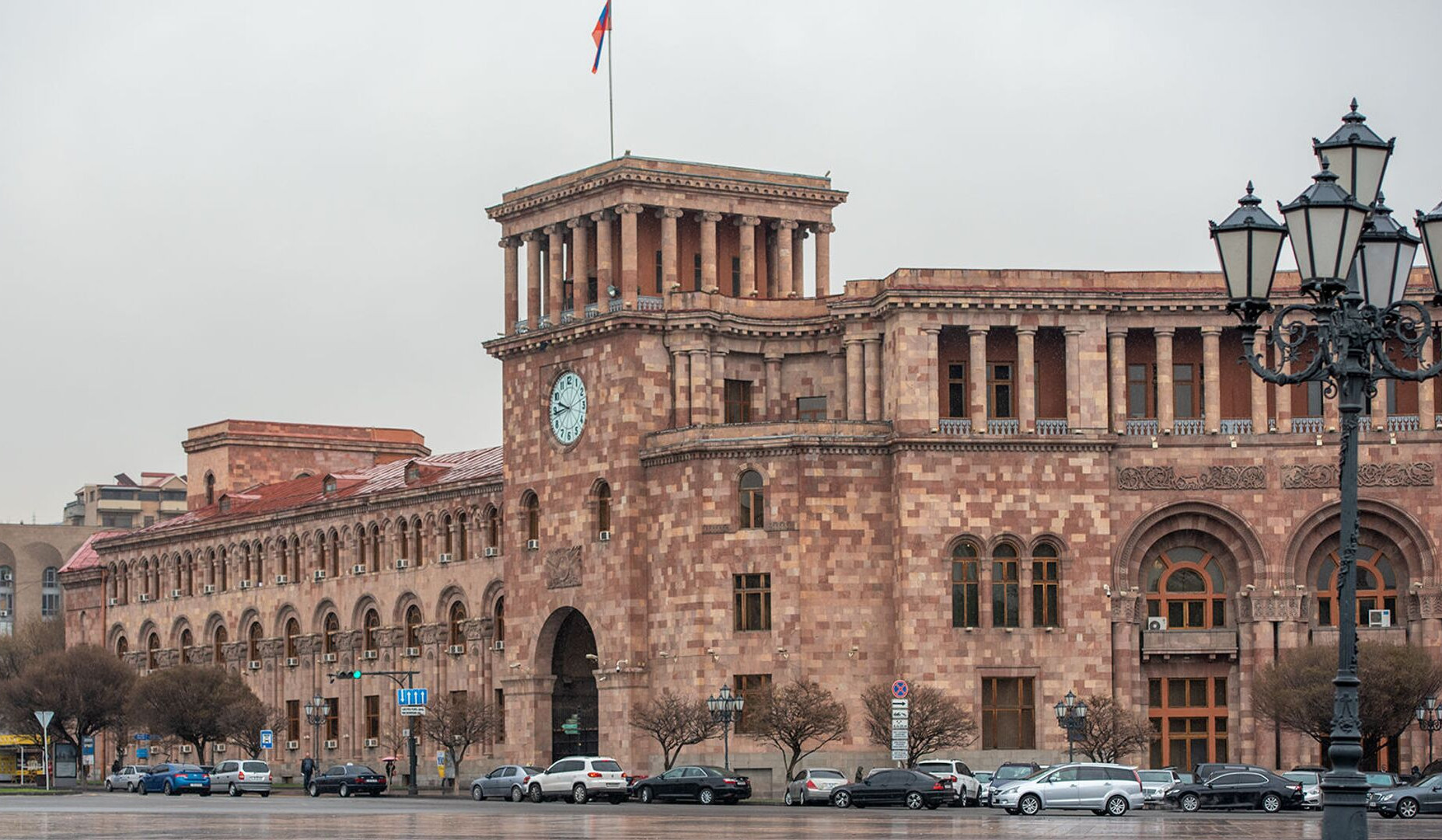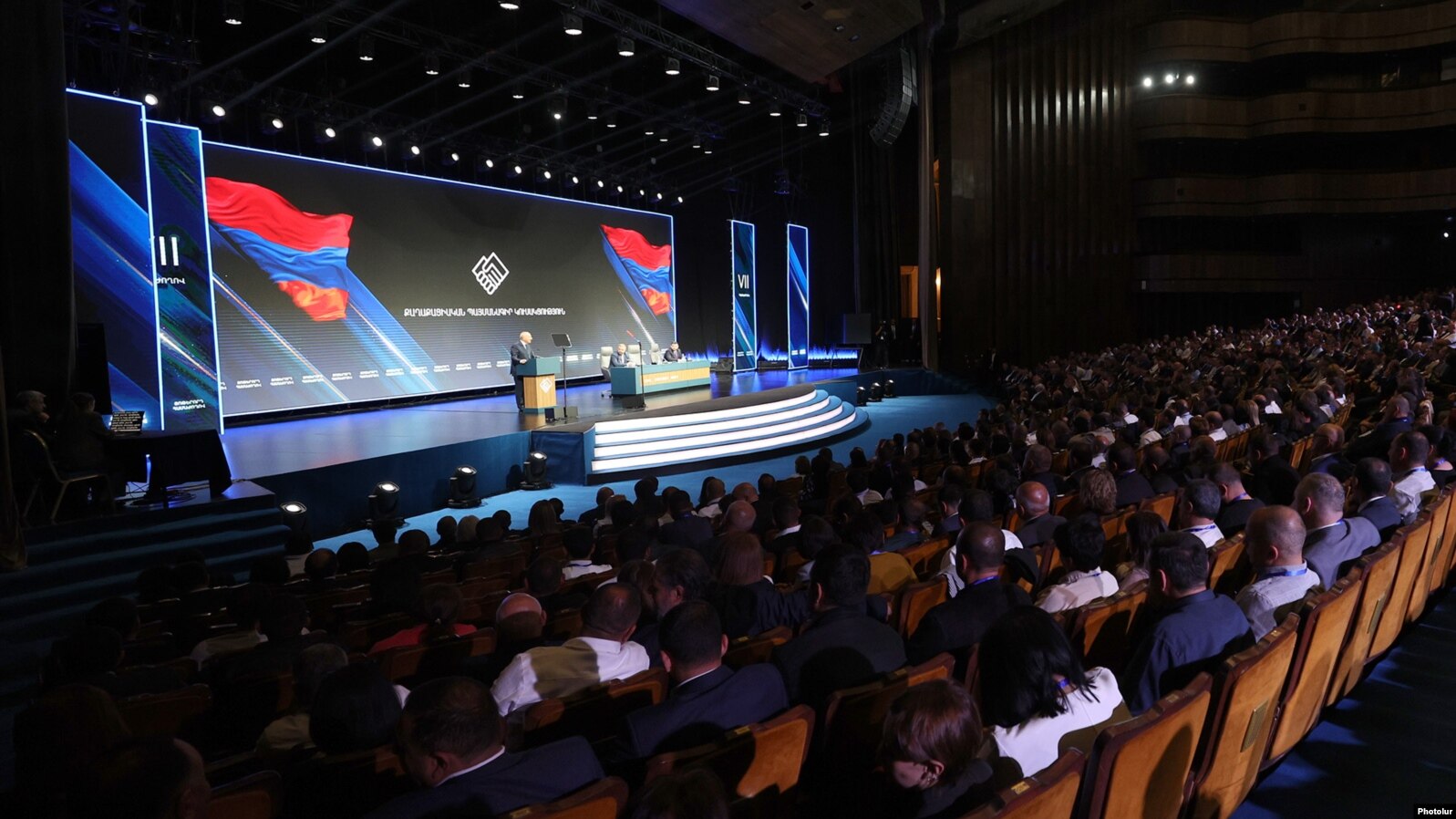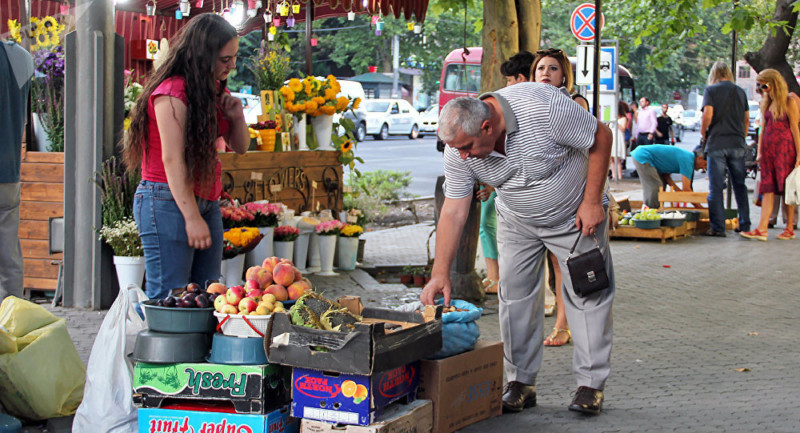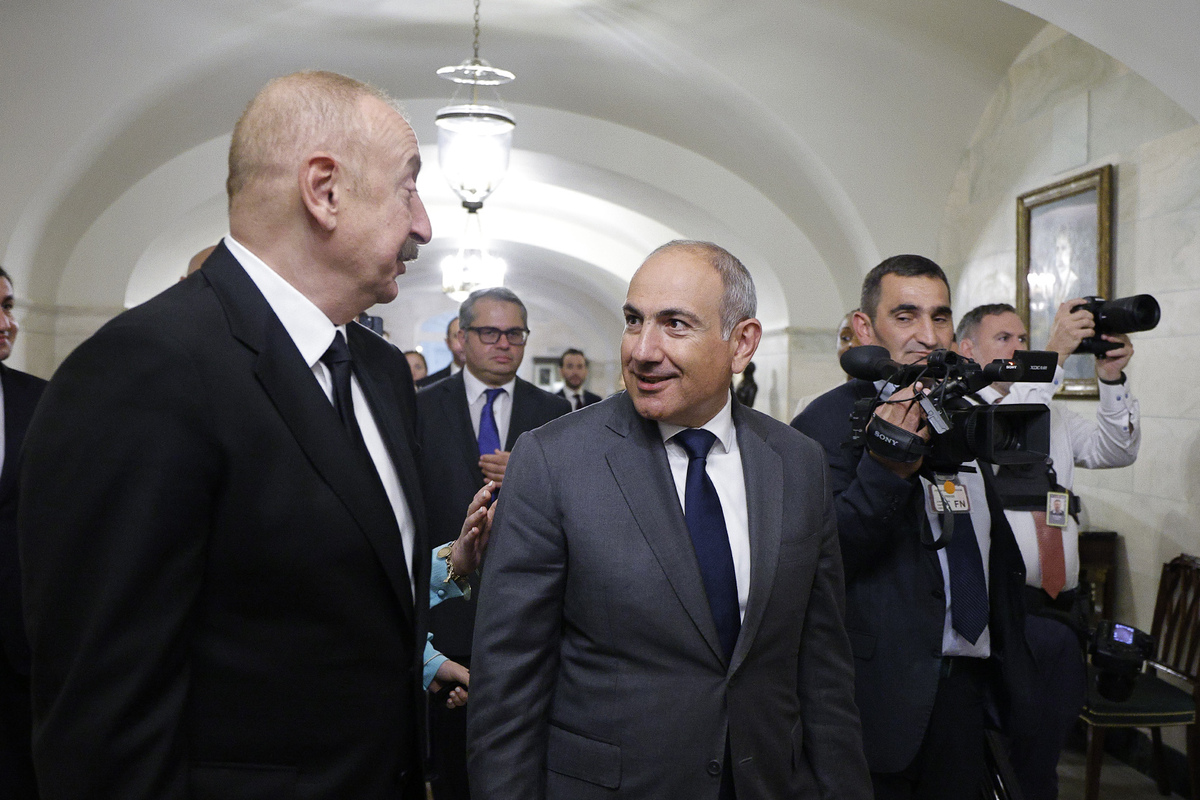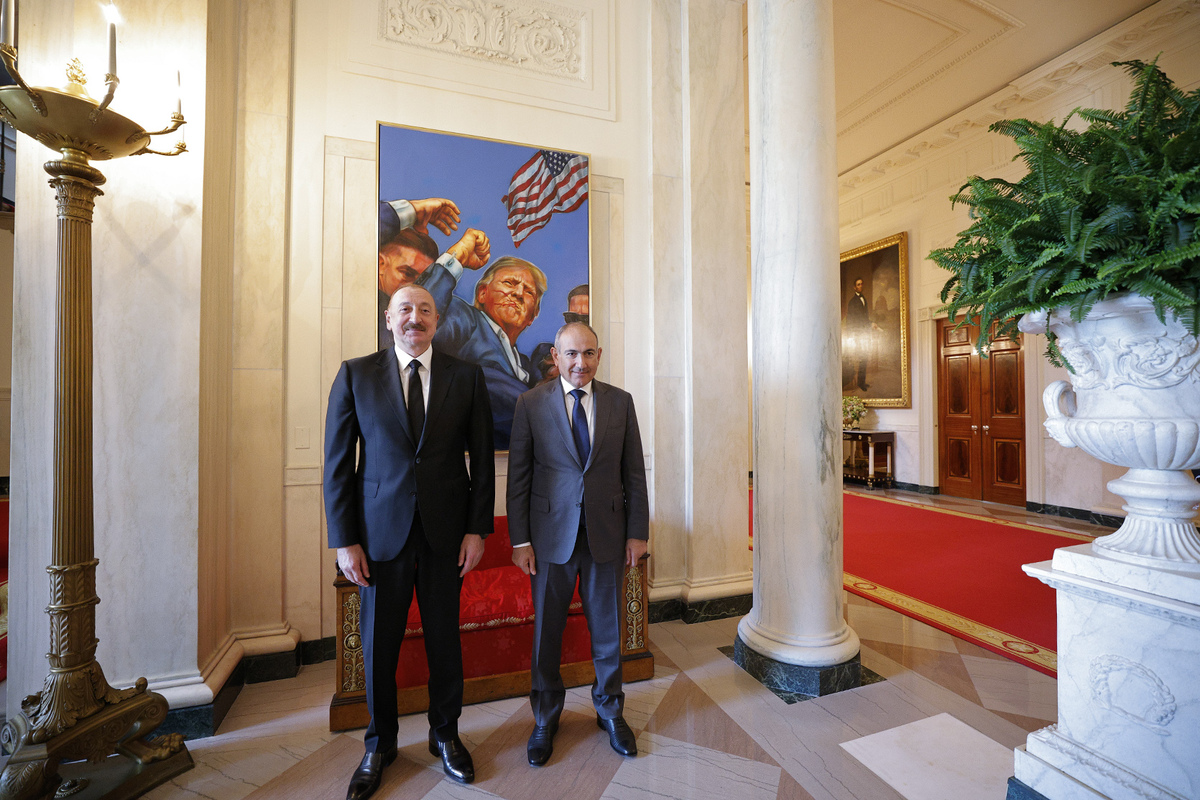Pashinyan: 'Armenia holds a modest but firm place among Europe’s democratic countries'
Pashinyan’s 2025 PACE address
“Today Armenia holds a modest yet firm place among Europe’s democratic nations. For us, democracy is not a coincidence, but a strategy, a political conviction and an integral part of our system of values,” Armenian Prime Minister Nikol Pashinyan told the autumn session of the Parliamentary Assembly of the Council of Europe (PACE).
He described the Council of Europe as a “home” where Armenia, as a democratic state, has its rightful place. Pashinyan stressed that since the 2018 “velvet revolution,” which brought his team to power, the country had made significant progress on democratic reforms. Among the achievements, he highlighted the role of women in public life.
“The Armenian parliament has never had so many women MPs. The government has never had so many women ministers. Women now head the Ministry of Internal Affairs – our largest law enforcement agency – as well as the Prosecutor’s Office and the Foreign Intelligence Service. This is unprecedented for our country,” he said.
Pashinyan also spoke about efforts to establish peace with Azerbaijan. At the end of his speech, he took questions from PACE members, insisting that when referring to Armenia they use the terminology and formulations adopted by his country’s government and parliament.
The main takeaways from Pashinyan’s address — along with excerpts from his exchanges with European parliamentarians — are set out below.
- Armenia between the West and Russia: risks of the government’s ‘balanced’ policy
- “No one has the right to threaten Armenia”: Pashinyan responds to statements by prominent businessman
- “Armenia more state than ever, more sovereign than ever” – Pashinyan’s Republic Day address
‘Democracy, in the literal sense of the word, has saved Armenia’s statehood and independence’
Pashinyan stressed that democracy in Armenia is “in safe hands” – not in those of the authorities or civil society, but of the people themselves. He recalled that immediately after the 2020 Karabakh war, Armenia faced hybrid attacks aimed at undermining its democracy and destroying the state:
“In a certain sense, the 44-day war was part of a hybrid war, the goal of which was to eliminate the statehood and independence of the Republic of Armenia. But, you know, it was democracy, in the literal sense of the word, that saved Armenia’s statehood and independence.”
He explained that “anti-democratic forces” demanded the transfer of power to them, using “war and the disinformation surrounding it” as tools:
“We declared that we cannot hand over power obtained from the people to anyone, we can only return it to the people. In April 2021, I resigned, which led to the dissolution of parliament. And amid a worsening border situation, the occupation of Armenia’s sovereign territories [by Azerbaijan], and an information terror campaign, snap parliamentary elections were held.”
According to Pashinyan, few believed his team would receive a new mandate in such conditions, but the ruling party won again – and even managed to form another parliamentary majority:
“This happened for one main reason: the people realised that these elections would be the guarantee of their own power in Armenia. I can state clearly and unequivocally that today, yes, power in Armenia belongs to the people, who are the guarantors of democracy in Armenia.”
‘There wasn’t even an attempt to falsify the election results’
From the PACE podium, Pashinyan stressed that since his government came to power, there have been no attempts to rig elections in Armenia. To back this up, he highlighted that:
- the 2018 and 2021 parliamentary elections were assessed by the international community as free, competitive and in line with democratic standards;
- the results of local self-government elections in recent years have not sparked protests, with opposition parties winning in several regions.
“This does not mean that electoral democracy in our country is free of problems. The practice of vote-buying is still used by certain forces in Armenia,” the prime minister noted.
He argued that those continuing the practice of buying votes are supported by “like-minded allies” abroad:
“On top of this comes disinformation. And in Armenia’s case, this is even more problematic, since much of the media landscape is controlled by forces removed from power after the 2018 revolution, who now act as the opposition. They spend part of their illegally acquired wealth on spreading disinformation to avoid the confiscation of illicit assets.
Practical steps against this disinformation campaign could be interpreted as an attempt to restrict freedom of expression, while inaction could be seen as the weakness and vulnerability of democracy,” Pashinyan said.
‘Since 2018, Armenia’s economy has grown by around 43%’
The Armenian prime minister also spoke about economic progress. He said that since his government came to power in 2018:
- the economy has grown by 43%,
- tax revenues to the state budget have more than doubled,
- Armenia has improved by more than 40 points in the Corruption Perceptions Index.
Pashinyan added that even more could be achieved, but this requires:
- the full establishment of an independent judiciary,
- the implementation of comprehensive and reliable anti-corruption mechanisms,
- effective counteraction to hybrid attacks,
- the entrenchment of the rule of law,
- strengthening the protection of human rights,
- increasing public trust in the state.
“Armenia will confidently continue along this path, and we are certain that on this journey we will receive strong support from the Council of Europe and its institutions” he said.
‘Peace is a daily effort’: on normalisation of relations with Azerbaijan
Commenting on the agreements reached with Azerbaijan in Washington on 8 August, Pashinyan said the deal would not have been possible without the “personal involvement” of the US president.
He described the initialling of the peace treaty with Azerbaijan as a historic moment and stressed that maintaining peace requires daily effort:
‘Peace, like a newborn child, requires daily care. Our newborn peace is now 1 month and 22 days old. We must nurture it, love it, and look after it so that it grows, matures, strengthens, and with it our region, the South Caucasus, can prosper.’
According to Pashinyan, establishing peace is the responsibility of both the government and people of Armenia, as well as the government and people of Azerbaijan. In this context, he highlighted the need to clarify the fate of the missing and address the situation of Armenians held in Baku’s prisons.
On ending war in Gaza, return of Karabakh Armenians and the ‘corridor’
Here are the main excerpts from Nikol Pashinyan’s answers to questions from European parliamentarians:
On ending the war in Gaza
“President Trump proposed a peace plan. The international community has already welcomed it, and we do as well. I hope that implementing this plan in the Gaza Strip will finally bring peace. Last year, Armenia recognised the state of Palestine, and we are closely following the process. We hope that, in the end, peace will be established through President Trump’s efforts and the support of the international community.”
On the return of Karabakh Armenians to their homes
“Frankly, I do not consider [the return of Armenians to Nagorno-Karabakh] realistic. Moreover, I believe people need to be told this honestly so they can make plans. In this context, I see the issue of returning refugees as potentially dangerous for the Armenia-Azerbaijan peace process.
Our compatriots from Karabakh should settle in Armenia. As Armenian citizens, they should live, create, and build their well-being here. That is our strategy.”
On the term ‘Zangezur corridor’
“You [Edward Leigh, UK Conservative MP] use the expression ‘Zangezur corridor’. Where did you get this from? This term does not appear in any document and never has. Rest assured, it will not appear in any agreement between Armenia and Azerbaijan.
The expression ‘Zangezur corridor’ is a gross violation of the sovereignty of the Republic of Armenia. No one has the right to give Armenian territories names not approved by the government or parliament. I strongly condemn your use of this illegitimate terminology.”
This refers to the road linking Azerbaijan to its Nakhchivan exclave across Armenian territory. Before the Washington meeting, Baku demanded an extraterritorial route and called it the ‘Zangezur corridor’. Armenian authorities agreed to provide the transport links but categorically rejected the term ‘corridor’, which implies loss of control over their territory. In Washington, both sides agreed on the creation of the “Trump Route”. Its management will involve American partners, and Armenia will retain its sovereign rights over the route.










